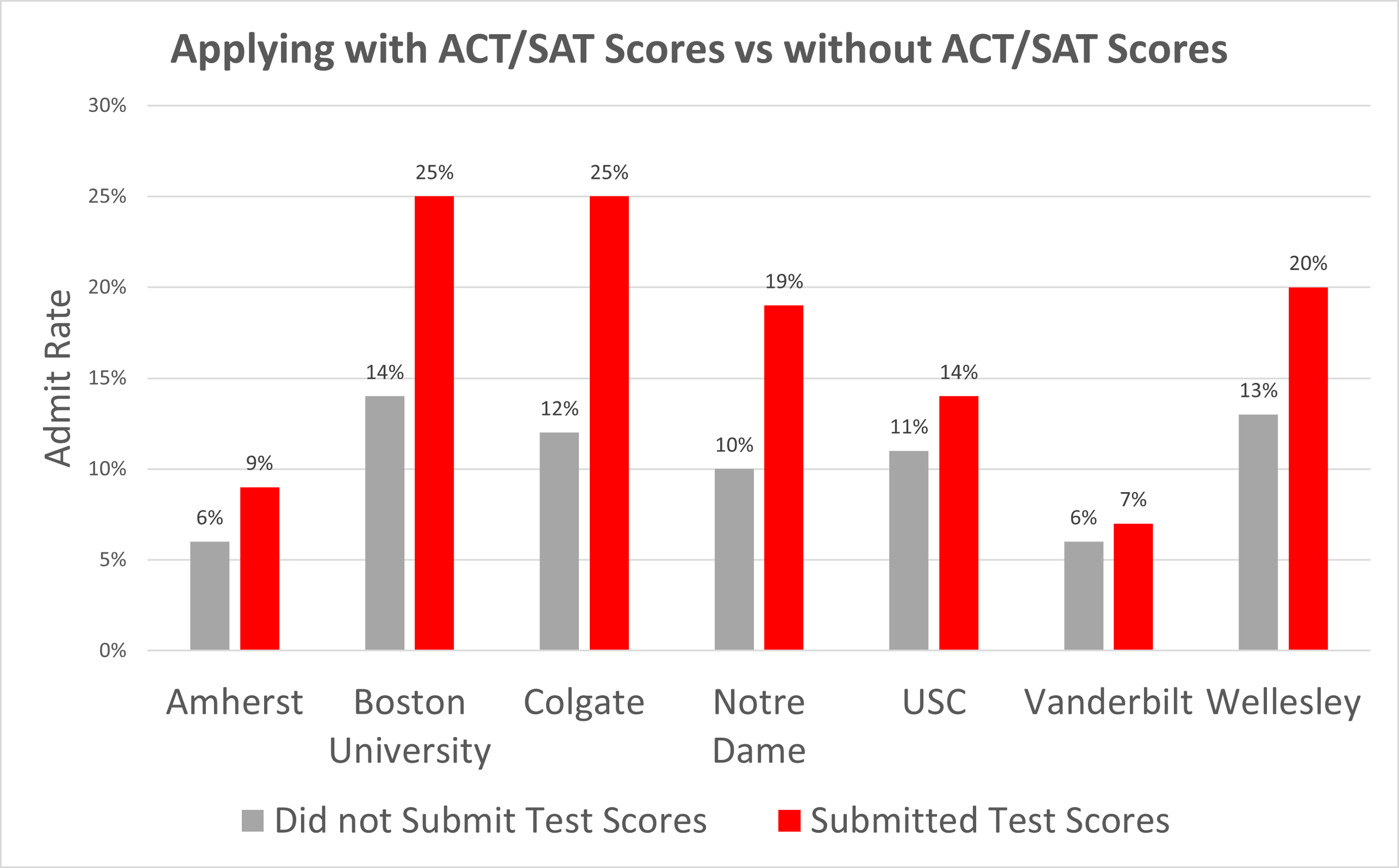The vast majority of colleges are test-optional. This means that they consider ACT and SAT scores if students include them in their applications.
ACT/SAT Required: 5.8%
Test-Blind (Do not consider ACT/SAT scores): 8.4%
Test-Optional (ACT/SAT scores can boost a student’s application): 85.9%
(These numbers are subject to change in the future. The above graph was created in April 2022.)
If most colleges accept ACT and SAT scores, it begs the question… does it help to submit scores?
The latest data from selective colleges that publicize their admission stats strongly suggest that scores make a big difference.
As seen above:
Notre Dame: Students were nearly twice as likely to be accepted to Notre Dame with an ACT or SAT score.
USC: Students with an ACT or SAT score were accepted 30% more often.
Boston: Students without scores had an admission rate of 14%. Students with scores had an admission rate of 25%.
Why do colleges still prefer to use an ACT or SAT score if it’s available to them? The dean of admissions from Yale put it very succinctly:
“Test scores are the single most effective factor in predicting a student’s first-year and four-year grade point average.”
It should also be noted that ACT and SAT scores are still strongly linked to scholarships. This past year, we had two students that applied to TCU with very similar credentials. The big difference was that one submitted an ACT score of 31, while the other did not submit a score.
Both students were admitted to TCU, excellent news!
However, the student with the test score received $144,000 in scholarship money that won’t have to be paid back. The student without a test score will have to pay for her full education out-of-pocket and through loans.
Conclusion:
Preparing for an ACT or SAT is one of the best investments a family can make in their student’s future.
Start preparing today with a free mock exam.




